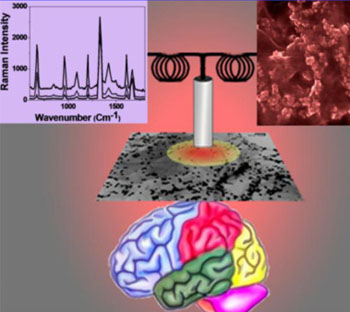Developing POC Tests for Alzheimer’s to Improve Monitoring and Management of the Disease
By LabMedica International staff writers
Posted on 22 Mar 2016
Toward development of a portable point-of-care (POC) biosensor for Alzheimer’s disease (AD), a new review explores recent advancements in nano-enabling electrochemical beta-amyloid (β-A) -sensing technologies. A simple, rapid POC biomarker test could greatly improve AD management and personalized treatment, also in developing countries.Posted on 22 Mar 2016
The authors of the review, from the College of Medicine at Florida International University (Miami, FL, USA), are taking a new approach to diagnosing AD: measuring β-A in the blood with a POC test. AD is caused by high levels of β-A in the brain that lead to degeneration of brain cells. Various types of scans and immunoassays, such as MRI and ELISA, are available to estimate β-A levels in the brain. But the peptide can also be found at lower levels in blood, making it a useful biomarker for a simple test.

Image: Illustration of a protocol showing a pathway to develop core-shell nanoparticle/hybrid graphene oxide based multi-functional platform label-free SERS detection of β-amyloid toward developing a portable point-of-care blood test to monitor Alzheimer’s disease progression (Figure courtesy of Teresa Demeritt et al., 2015, ACS Appl. Mater. Interfaces; Copyright ACS-2015).
Currently there is no sensitive or inexpensive way to measure β-A levels in blood samples. The authors of the new review plan to change that. “We want to develop a point-of-care system where a small drop of blood plasma can reveal their β-A level immediately so that a doctor can tailor a patient’s therapy immediately,” said lead author Dr. Ajeet Kaushik, “The drugs used to treat AD can have side effects, so it’s better for patients not to overdose. With the right data, doctors can respond quickly to changes in a patient’s brain by reducing or increasing their dose.”
In the review, Dr. Kaushik and colleagues looked at each of the methods available to measure β-A concentration in brain tissue and in blood. None of the existing tests can be done at the bedside and all need special expertise and large samples. They also take a long time to generate a useful result—the main existing test, an ELISA, takes 6–8 hours. In comparison, the cheap, simple biosensor Dr. Kaushik and colleagues describe can measure β-A in the blood at low (pico molar) concentrations in just 30 minutes.
“Even though existing technologies are well established, we need to move towards small sample, high accuracy tests that can be used in all environments, from developed countries to rural settings. Our goal is to develop a test that’s sensitive, small, and affordable,” said Dr. Kaushik. To develop the new biosensor, the team will need many bio-fluid samples taken at different stages of the disease. Finding these samples will be challenging, but the review demonstrates that a biosensor is achievable. Such a test would also “show if and when the disease reaches an untreatable level. In the future we hope a rapid biosensor test for AD will help scientists study disease progression and help clinicians deliver personalized therapy to patients.”
The study, by Kaushik A et al., was published online ahead of print January 28, 2016, in the journal Biosensors and Bioelectronics.
Related Links:
Florida International University








 (3) (1).png)




